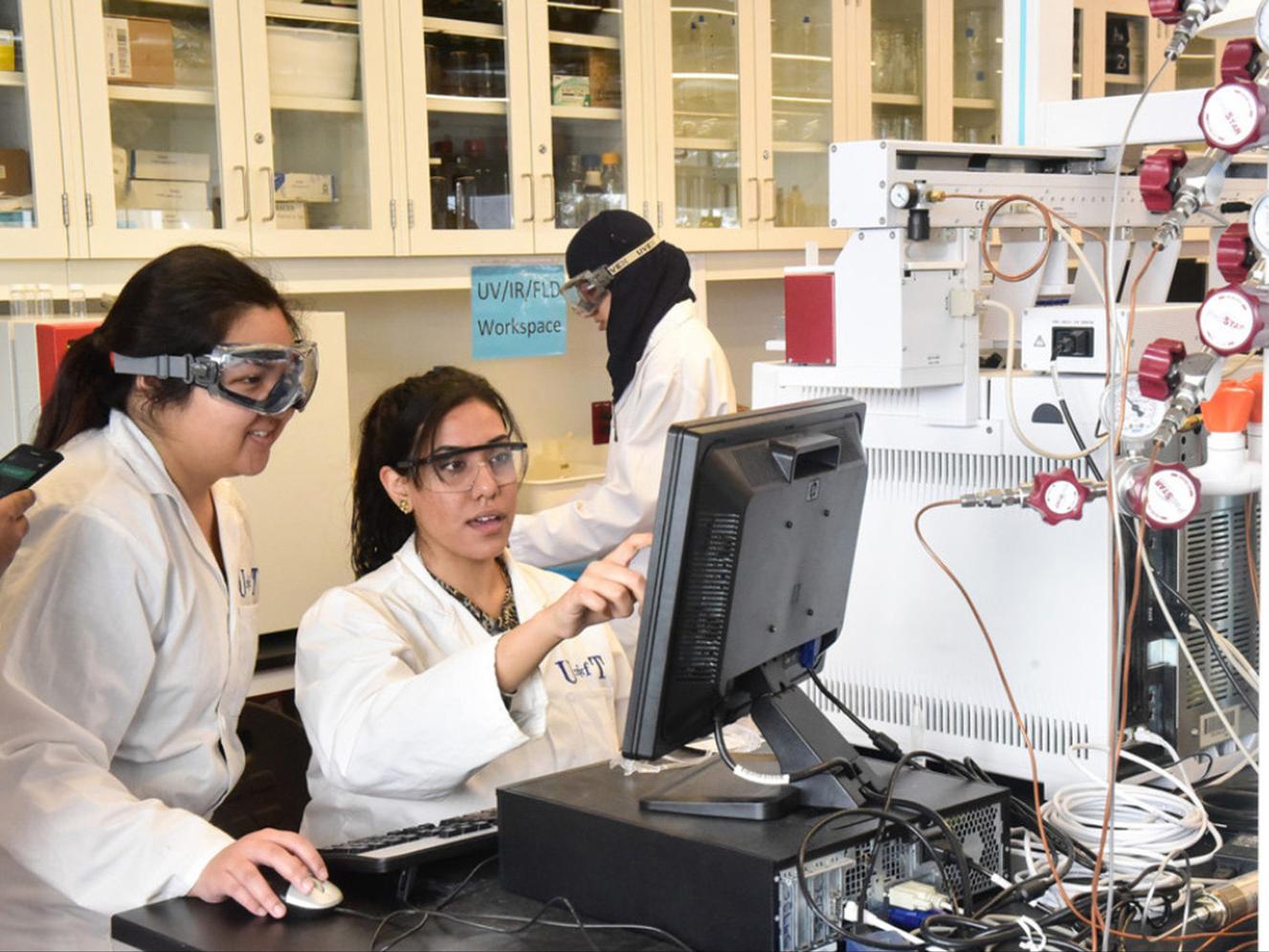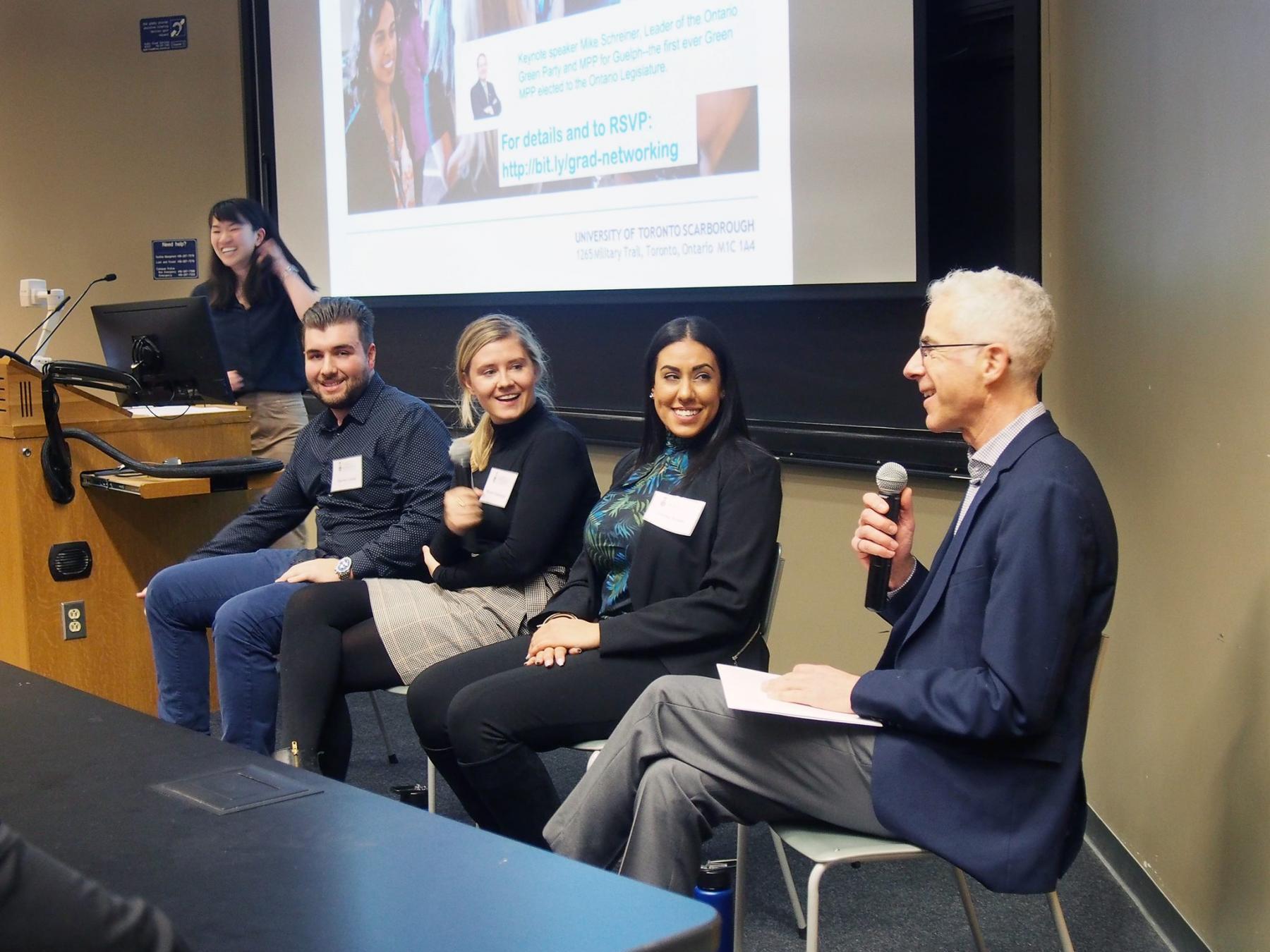Our team is connected to a wide variety of funding partners and programs – let us be your gateway to funding that meets your organization’s needs. Contact us to learn more about these programs and determine your eligibility – email us anytime at hiremasters.utsc@utoronto.ca
Notable Funding and Wage Subsidy Programs
*Applications for funding roles from April 2024 to September 2024 closed in January 2024.
*Updated information on applications for funding for roles from April 2025 to September 2025 will be available in late December 2024 - updated January 11, 2024
Canada Summer Jobs provides funding to not-for-profit organizations, public-sector employers and small businesses with 50 or fewer employees. This funding is designed to create summer jobs for young people aged 15 to 30 who are full-time students intending to return to their studies in the next school year.
Youth requirements:
- Be between 15 to 30 years of age at the start of the employer period
- Be a Canadian citizen, permanent resident, or person to whom refugee protection has been conferred under the Immigration and Refugee Protection Act for the duration of the employment
- Have a valid Social Insurance Number (SIN) at the start of employment and be legally entitled to work in Canada
Employment period:
Full-time work experience in Canada between April 25, 2024 and August 31, 2024
- a minimum of 6 weeks and a maximum of 16 weeks
- a minimum of 30 hours and a maximum of 40 hours
Wage Subsidies
Funded non-profit employers can receive funding for up to 100% for provincial or territorial adult minimum hourly wage and all associated Mandatory Employment Related Costs (MERCs).
Funded public and private sector employers are eligible to receive funding for up to 50% of the provincial or territorial minimum hourly wage. Public or private sector employers are not eligible for reimbursement of MERCs.
The Co-operative Education Tax Credit is a refundable tax credit for Ontario-based co-op employers who hire students enrolled in a co-operative education program at an Ontario university or college. Corporations can claim 25% of eligible expenditures (30% for small businesses), for up to a maximum credit of $3,000 per co-op term. Our MEnvSc work terms are a minimum of 16 weeks in length. Eligible corporations can claim the tax credit on Schedule T2SCH550 of their T2 Corporation Income Tax Return.
*Mitacs Accelerate funding is available for Summer 2024 - updated January 11, 2024
Mitacs Accelerate leverages research projects between industry partners and academic researchers. Internships start at four months with opportunities for extension. Successful applicants are required to contribute a minimum of $7500 contribution to receive a $15,000 research award. Eligible partners include for-profit and not-for-profit corporations in Canada, for-profit businesses operating outside Canada, and eligible intern-owned start-ups at approved incubators from all sectors.
Interested in exploring a collaborative research project with University of Toronto faculty? Please contact us directly for more information.
*Mitacs Business Strategy Internship funding is available for Summer 2024 - updated January 11, 2024
In partnership with Canadian academic institutions, Mitacs is pleased to offer the Business Strategy Internship (BSI). The award provides either $10,000 or $15,000 per intern to allow them to undertake a four-month internship project with a partner organization in Canada. Interns will work with their academic supervisor to co-design a project with their partner organization to work on the organization’s innovation activities, helping them improve their products, processes, or services. Throughout the internship, Mitacs provides online professional development courses to interns through our e-Campus, EDGE.
Nature Canada’s Work to Grow program connects racialized youth to jobs that promote and protect nature. Eligible employers included non-profits, for-profits, Indigenous organizations & governments and educational & cultural intuitions that relate to nature conservation and appreciation. Nature Canada will provide a 50% wage subsidy to increase your capacity to hire youth aged 15-30, at $17.50/hour for up to 35 hours/week, for between 8 and 16 weeks. Youth applicants must be:
- Between the ages of 15 and 30 (inclusive)
- Legally entitled to work in Canada
- A Canadian citizen, permanent resident, or granted refugee status
- Self-Identified as BIPOC (Black, Indigenous, People of Colour)
Project Learning Tree Canada offers a 50% wage match (up to a maximum of $6,000 per youth) to employers hiring youth aged 15-30 into forest, conservation and parks jobs. The duration of the work experience must be from a minimum of 2 weeks to a maximum of 20 weeks, and the work experience must take place in Canada. To be eligible for the wage matching, employers must first register as a Green Jobs employer. Once an employer is registered and positions are added, it may take up to 72 hours to review them.
The Student Work Placement Program (SWPP) helps postsecondary students in science, technology, engineering, math (STEM) and business programs get the work experience required to prepare for jobs in these high-demand fields. SWPP is an initiative to increase the job-readiness of students registered in STEM, healthcare, business and all other programs at Canadian post-secondary institutions. Employers can receive wage subsidies of up to 70% of the wage cost for the work term (to a maximum of $7,000 per student).
- Up to $5,000 for every student you hire through the program
- Up to $7,000 for every student you hire that is in their first year or is from an under-represented group including:
- Women in STEM
- Persons with disabilities
- Newcomers
- Indigenous students
- Visible minorities
- First year students
Notable SWPP programs for environmental organizations include:
- BioTalent Canada
- ECO Canada
- Electricity Human Resources Canada
- Excellence in Manufacturing Consortium (EMC) - WilWorks
- Magnet Student Work Placement Program
- Mining Industry Human Resources Council
- Ontario Chamber of Commerce – TOP Program
Additional Funding and Wage Subsidy Programs
CanExport SMEs is looking to help small and medium-size enterprises located in Ontario increase their access to global markets. Companies with a maximum of 500 full-time equivalent employees and who have declared between $100K to $100M in annual revenue during the last 12 months in Canada may qualify. Eligible applicants may receive up to $75,000 in CanExport SMEs funding to cover up to 75% of international market development activities. Applications are accepted year-round and assessed on a first-come, first-served basis, and most applications are approved within 60 business days.
Green Jobs Science & Technology Internship Program (STIP) is funded by Natural Resources Canada. Green Jobs STIP provides wage subsidies for hiring organizations in the natural resource sectors to host eligible interns for six to 12-month internships. Eligible employers will be provided with salary support of up to 75% of an intern’s salary, to a maximum of $10,000. The application deadline to submit a proposal is typically in mid-April.
The NRC IRAP Youth Employment Program offers financial assistance to offset the cost of hiring youth to work on projects with R&D, engineering, multimedia or market analysis components as well as to help develop new products or processes. Eligible businesses must be small or medium size, have 500 or fewer full time equivalents and be incorporated of for profit. The internship will last a minimum of 6 months and a maximum of 12 months, and the candidate must work a minimum of 30 hours per week. The candidate must also be 15-30 years of age, a Canadian citizen, permanent resident or person granted refugee status and a post-secondary graduate.
The Northern Ontario Heritage Fund Corporation provides program funding for existing and growing sectors in Northern Ontario. There are 13 different programs, each with unique funding and eligibility requirements. Please refer to the website for application deadlines.
Ontario Innovation Tax Credit provides a refundable tax credit for Ontario corporations working in scientific research and experimental development areas. Qualifying corporations can claim 8% up to a maximum of $240,000 per year.
The Scientific Research & Experimental Development (SR&ED) program is a federal tax incentive program designed to encourage Canadian businesses to conduct research and development in Canada. Eligible companies may deduct SR&ED expenditures from their income for tax purposes and receive a SR&ED investment tax credit. A Canadian-controlled private corporation can earn a refundable ITC of 35% on qualified expenditures, up to a maximum of $3 million.
Canada Green Corps is an innovative programme created by the United Nations Association in Canada to launch the careers of talented but un- or underemployed Canadian youth. It is open to recent post-secondary graduates aged 18-30 at the time of intake who are eligible to work in STEM fields. Successful candidates will gain valuable professional experience from full-time six month Work-Integrated Learning internships with employer partners across Canada. Applications are accepted on an ongoing basis.
Young Canada Works in Both Official Languages is a job program that allows eligible employers to benefit from wage subsidies and access to a pool of talented youth with innovative ideas and competitive skills. Positions last up to 16 weeks and students must work 30 to 40 hours per week. The program may contribute up to 50% of the student's employment costs for private and public sector organizations and up to 70% of the student's employment costs for non-profit organizations. The application deadline for summer work terms is typically due in mid-February.
Young Canada Works in Heritage Organizations is a job program that allows eligible employers to benefit from wage subsidies and access to a pool of talented youth with innovative ideas and competitive skills. Positions last up to 16 weeks and students must work 30 to 40 hours per week. The program may contribute up to 75% of the student’s employment costs to a maximum of $8,000 per job and $50,000 per employer. The application deadline for summer work terms is typically due in early February.






